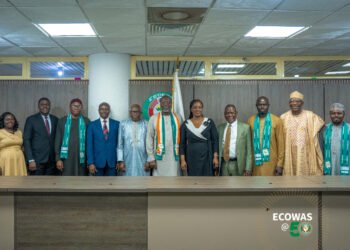In responds to the request of the Central Bank of Ghana, the International Monetary Fund (IMF) has assigned a Resident Advisor in financial sector supervision to the Bank of Ghana to provide technical assistance and assist in building the capacity of the banking supervision function.
A statement released by the Bank of Ghana disclosed that the cost associated with the appointment of the Resident Advisor was fully funded by Switzerland’s State Secretariat for Economic Affairs, SECO.
The fund appointed Mr. Leonard Chumbo, an Irish and Kenyan, to oversee, monitor, inspect, and examine the operations of the Central Bank to ensure that the bank complies with rules and regulations, and that they operate in a safe and sound manner.
The Advisor’s placement, according to the statement, is a continuation of cooperation between Bank of Ghana, the IMF and SECO, which commenced in 2015 and has already seen the assignment of a previous Advisor until 2018.
“Achievements from the past collaborative effort include the passage of the Banks and Specialised Deposit-Taking Institutions Act, 2016 (Act 930), the development and issuance of the Corporate Governance Directive 2018 and the Capital Requirement Directive of 2018.”
Bank Of Ghana
Elaborating on the expected role of the Resident Advisor, BoG communicated that Mr. Leonard Chumbo will bring first-hand knowledge of supervisory work from leading central banks, as well as previous technical assistance experience in the West Africa Region.
“Mr. Chumo’s three year-assignment commenced on 6th February 2023. He will support the implementation of Pillar 2 and 3 of the Basel II/ III capital frameworks, as well as strengthen the Risk-Based Supervisory framework at the Bank, among others.”
Bank of Ghana
As a means of gratitude, the Central Bank of Ghana expressed its utmost appreciation to SECO for the continued funding of Long-Term Technical Experts from the IMF to the Bank.
Government of Ghana, IMF Agreement
Ghana is closing in on a three-year US$3 billion support from the IMF to help reorganize its finances for the cedi depreciation and inflation to stabilize.
The Government, along with the Central Bank of Ghana and the International Monetary Fund staff, have had very fruitful discussions on the authorities’ post-COVID program for economic growth and associated policies and reforms that could be supported by a new IMF arrangement.
Good progress (such as the appointment of a Resident Advisor) in identifying specific policies that would restore macroeconomic stability and lay the foundation for stronger and more inclusive growth, have been made by both the government and IMF.
The IMF team and the Ghanaian authorities have remained fully committed to reaching agreement on a framework and policies for an IMF-supported program as soon as feasible.
Read also: On-Lending Policy For Loan Arrangements Must Be Initiated- Dr. Ato Forson




















